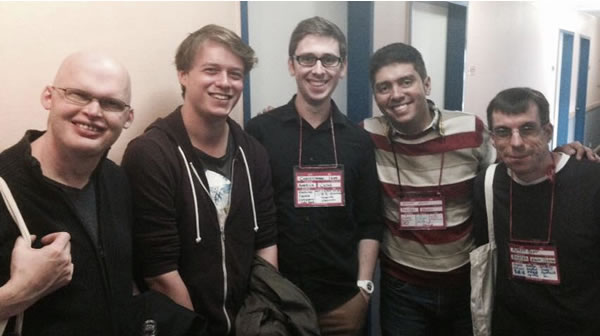If I offered you a rollipoke, would you have any idea what it was or what to do with it?
This is a word I came across while looking for something else in the Dictionary of The Scots Language / Dictionar o the Scots Leid today. It is defined as, “A sacking of loosely woven hemp in which cheese was wrapped before being buried to ripen.”
Rollipoke comes from roll / row, one of the meanings of which is ‘to wrap up, around, in’; and poke is a variant of pock (a simple type of bag or pouch, a small sack or sack-like receptacle).
Ronner and roudge are other words for the rollipoke.
In East Anglian varieties of English, a rollipoke is “hempen cloth of very coarse texture. Perhaps so named, because only fit to be used as bags or wrappers for rolls or bales of finer goods.” [from The Vocbulary of East-Anglia Etc. Volume 2]
Some examples of use of poke / pock (also written powk, poak, etc):
– An ill-bred loon or twa crackit a paper pyoke at the verra time he was speakin’.
– Every young sheeld hed his muckle pokky o’ sweeties, ‘at he haandit aboot in nev-fues.
– He wambles like a poke o’ bran.
Glossary
– loon = a rogue, rascal, scoundrel, a worthless person
– sheeld (a variant of chield) = child
– muckle = large, big
– nev-fues = ?
– to wamble = to stagger, totter, wobble
Pock can also mean:
– the bag used by a beggar for collecting meal or the like given in charity, a beggar’s scrip or wallet.
– a sack or bag holding a certain quantity of wool, a measure of wool
– A net in the form of a bag or pouch used for catching salmon, a purse-net; a bag-shaped net for catching small coal-fish
Related words include:
– butter-poki = a small thin bag through which the water is strained from freshly-churned butter
– pock-end = the bottom or corner of a bag or receptacle, esp. one used to hold money.
– pock-pud(ding) = (1) a dumpling or steamed pudding cooked in a bag of muslin or similar thin material; (2) a jocular or pejorative nickname for an Englishman from the supposed fondness of the English for steamed puddings, with an additional implication of omnivorousness and stolidity.
